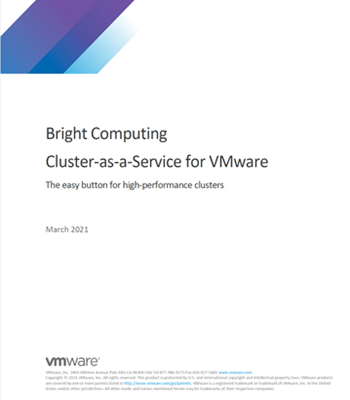Yesterday Sun announced a new blade for its HPC environments. The X6440 blade has 4 six-core AMD Opterons, and Sun’s Constellation packaging puts 1152 cores in a single 6048 chassis. Sun x64 blade systems and servers – Sun’s new x64 blades and rackmount servers with the latest Six-Core AMD Opteron processors are ideal for virtualization, […]
Archives for July 2009
AMD reports Q2, posts loss
AMD reported second quarter results today, revenue was flat quarter-over-quarter, and down 13% over the same period last year. This is the 4th straight quarter of declines in revenue for AMD, and follows several years of “negative income” for the company “The AMD Product Company successfully executed its product and technology roadmaps in the first […]
Green HPC podcast episode 2 transcript available
Just a quick note to update you on the Green HPC podcast series, which continues to get a tremendous response (thanks!). I’ve added a transcript of the second episode, in case you’re more of a reading person than a listening person. If you don’t know about the series yet, take a listen to the episode.
Lifting the Hood at Convey Computer
FPGAs, and other forms of acceleration-asisted computing, offer a lot of potential for dramatically accelerating certain classes of algorithms of interest to the high performance computing set. But realizing that potential can be cumbersome and time consuming, and as a result real-world results can often be disappointing.
But what if those barriers disappeared? The answer to this question is what spurred the collective minds of Bruce Toal, Tony Brewer and Steve Wallach to found Convey Computer. The idea is to take a holistic approach and develop an integrated system of hardware, software and execution models that would radically accelerate single threads. The secret sauce behind Convey’s technology is the ability to deliver on these goals completely abstracted from the user with no inherent code changes required: compile, run.
I recently had a chance to sit down with the three founders at their Richardson, Texas mother ship to find out exactly how they plan for all of this to work.
IBM announces POWER7 upgrade path
IBM issued a press release today that has several things in it, one of which is of possible interest to you A Power 595 or 570 system upgrade can be accomplished during planned downtime by simply replacing the processors, memory and system controllers with new POWER7 components within the existing system frame. POWER7 processors will […]
Cloud-based simulation for automotive engineering
ComputerWeekly.com is running a feature on the use of hosted computational resources (“clouds”) for simulation-based automotive simulation. The contrast is of course between locally maintained clusters for CFD and mechanical computation and remotely hosted resources Putting the computational processing power in the cloud reduces this overhead. Southampton start-up dezineforce has developed a hosted engineering design […]
Sun HPC Software Workshop, summer in Germany
Found at one of the Sun blogs, news of the next HPC workshop in Germany in September September 7-10 at the Best Western Premier in Regensburg, Germany, we’ll be holding the next Grid Engine workshop. What is exceptional about this year, though, is that we’re expanding the scope to be about all of Sun’s HPC […]
Clubhouse Parallel Universe Boot-Camp brings parallel programming to high schools
This falls into the category of a very good first step. We need more of this, and soon. Intel announced a high school initiative that’s part of their outreach to teach the next generation to “think parallel” The Intel Academic Community and the Brooklyn Technical High School today kicked off the Clubhouse Parallel Universe Boot-Camp, […]
Frequently asked questions about large data clouds
Bob Grossman, whose work I wrote about last week for HPCwire, has a post at his blog that addresses some of the FAQs regarding the processing of large datasets in a cloud infrastructure. The post is interesting, and if you are at all interested in clouds for large data, or scientific computing in general, I […]
Of crayfish and supercomputers
Found on Twitter last Friday; made me laugh: ckittel : Conversation with @kphutt — A crayfish is not a fish, so it must be a supercomputer. As such, it should be able to run Linux.



